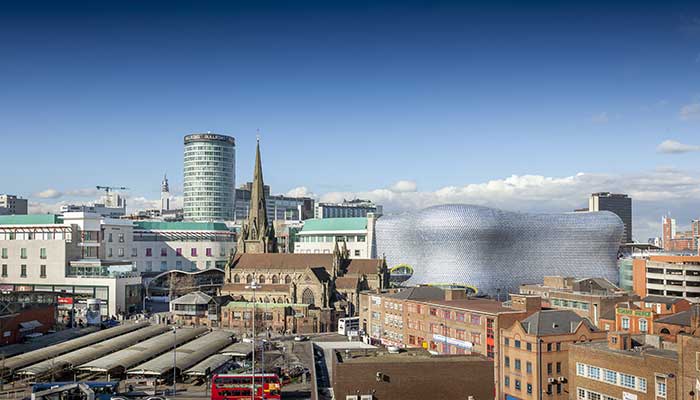
Photo: Shutterstock
Every ministerial speech at last week’s Conservative Party Conference was peppered with praise for Andy Street – the party’s new candidate to be Mayor of the West Midlands in 2017. It now appears a second devolution deal for the area is close to being agreed, this time focusing on allowing the region to retain more of the tax generated locally to reinvest in housing and infrastructure.
Although details of this latest proposed deal remain sketchy, and there has been no official confirmation from central government, any deal that marked a progression in the financial freedoms available to local areas would be hugely significant.
Despite the devolution deals agreed to date, the UK remains overwhelmingly centralised, with UK cities having limited say in the big decisions that shape their future. The level of taxes controlled locally or regionally in the UK is roughly 10 times less than in Canada, seven times less than in Sweden, and nearly six times less than in Germany.
But potentially just as significant is that it is the West Midlands which is now being touted as the area likely to receive fiscal devolution, as opposed to Greater Manchester, which has to date led the way with the most expansive and ambitious devolution deal of all those agreed.
Prime minister Theresa May has been at pains to differentiate her approach to economic development outside of London from that of her predecessors, and to emphasise that the Northern Powerhouse – while important – is not the be all and end all for her Government. And if the aim is to demonstrate this broader focus, there are a number of good reasons for the Government to shift its focus to the West Midlands.
For starters, the area itself is large with significant economic potential – the West Midlands Combined Authority comprises 12 authorities (including non-constituent members), is home to roughly 4 million people, and boasts an £80bn a year economy. Having struggled for decades to shake off its post-industrial hangover, Birmingham city centre saw private sector jobs growth of 17% between 1998 and 2011, and is now home to 40 per cent of the UK’s national conference trade, as well as Europe’s second largest insurance market.
In addition, unlike those mayoral races in Manchester and Liverpool, the Conservatives could feasibly win in the West Midlands in 2017. Labour’s lead over the Conservatives in the region was less than ten points at the 2015 General Election, and in the year since, this gap could have narrowed even before local campaigning begins.
In the spiritual home of the Labour “right”, the region’s traditional Labour voters may be turned off by its more recent leftward shift and the second leadership success of Jeremy Corbyn in the last twelve months. Furthermore, turnout will almost certainly be lower in May 2017 than in the general election. If, as usual, younger people (who are more likely to vote Labour) do not turn out, but older people (who largely lean to the Conservatives) do, that could help to tighten the race between the two leading parties and give Andy Street a real chance of victory.
A Conservative mayor of the West Midlands may also shift the political dynamic of devolution. Much of the Northern Powerhouse agenda and devolution to Greater Manchester was shaped by the close relationship and trust shared between Manchester City Council chief executive Sir Howard Bernstein and George Osborne. But with the former retiring and the latter now on the backbenches, it is conceivable that should he win, the future of the devolution agenda could instead be shaped by Andy Street’s relationship with Phillip Hammond and Theresa May.
Of course, we shouldn’t get carried away. The political leaders of the West Midlands have come a long way in a very short space of time in order to reach common agreement on a devolution deal and establish the West Midlands Combined Authority. But in terms of the strength and longevity of local institutions and the powers currently included in their deal, Greater Manchester remains the leading light of UK city devolution.
Yet there are signs that this could change in the months and years ahead. Should the West Midlands secure an ambitious second devolution deal, which includes new fiscal powers, and should the Conservatives triumph in the region in 2017, then Greater Manchester may find it is no longer alone in the vanguard of UK city devolution. Such increased competition would be good news for those keen to see devolution remain at the top of the political agenda – and if it leads to greater economic control being transferred to Greater Manchester, the West Midlands and other big city-regions, then it would be good news for the national economy too.





















